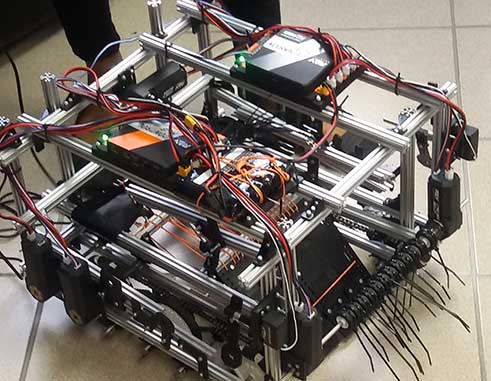ANOTHER school year has now ended and parents and students are now engaged in the cycle of preparing for the new school year in September. Presently, students stand at a crucial juncture: getting a little down time from a long year of preparation for success while pondering improving on those achievements come September.
But September comes and goes without any real change in the education system here, except, of course, for the fact that students and teachers find themselves cornered – or shut out – of classrooms due to vermin taking over or ministry officials reneging on their promise to ameliorate the appalling conditions at our schools.
Aside from the acquisition of stationery and school clothes, our students need better conditions that serve to inspire, improve and motivate their learning process. For too long now, they have been given excuses as to why things in the school plant cannot be improved. Lack of finances is usually the cheapest excuses. Meanwhile, parents, teachers and students witness public officials enjoying posh offices while they suffer ad nauseam.
Further, there is a growing debate that our students are not being prepared for the ‘real world’ – that they lack the fundamentals to function properly in society, including having the right inter-personal skills to coexist with others and become and remain employed. Even the local Chamber of Commerce is on record in decrying the curriculum which, it argues, does not embody the right formula that prepares students for the world of work. In such a case, what then are students studying for?
Sometime ago, an op-ed in this newspaper suggested that e-books, for example, gradually replace the high-priced heavyweight text books students are forced to lug to school and back. The article indicated that especially since many parents were forced to furnish textbooks for multiple siblings, the financial burden was enormous, resulting in many not being able to buy the full complement of books.
With e-books, any change in the curriculum or syllabus would be reflected with a few taps of a button by the programmers who license the syllabi to students for a fee lower than the costs associated with printing books and their revised editions. Also, it gave students the opportunity to become better acquainted with the growing trend of fast-paced technology.
However, that idea was dismissed by many, including some education ministry officials who questioned the students’ ability to adjust to the proposed method. The irony, however, was that Throne Speeches and Independence addresses are often replete with the emphasis on education and bridging the old and new technological divide.
One only needs to visit a Science Fair at our schools to get an appreciation of how advanced our students are. Apparently, the stones that the builders are under-estimating are valiantly pushing forward with their brilliant ideas, silently mocking those who would wish that their future be a repeat of the Stone Age.
With education, innovation and sustainable falling under one ministerial portfolio, the time seems ripe that our school system shifts gears and become the environment that promotes a first-rate education for students impatiently awaiting education officials taking them seriously.
This week, something amazing happened when it was announced that three teenagers from Sir Arthur Lewis Community College will be representing the island in Washington, DC at the inaugural Global Robotics Challenge. They will face competition from counterparts from around theglobe for the top prize.
Their project is a robot named H2O Flow, which essentially underscores the need for sourcing fresh clean water in environments where the potent potable is scarce. It’s an admirable project, considering that for a few years now the island’s water supply system has been besieged by natural disasters that have reduced the holding capacity at John Compton Dam.
Minister for Education, Dr. Gale Rigobert, lauded the students for their project, indicating that despite its size, Saint Lucia “cannot afford to remain passive about the power of digital technology” and that over the past year, government had “exerted tremendous energy to ensure that there is complete infusion of technology in the education sector.” She noted that as of September the digital literacy curriculum will be introduced to lower secondary schools so as to raise students’ competency and literacy by Form Three.
Assuming that the Minister is correct on all counts, the government should take a bow for embracing these measures wholeheartedly. We cannot afford to lose time and effort by thinking that the classroom of decades past can remain the template for the future. If students are to take their education seriously, then every endeavour to take them and the curriculum seriously needs to be adopted.














